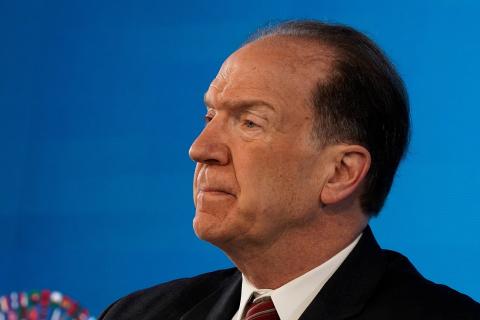
RIYADH: A senior official with the UN World Food Program has praised Saudi Arabia for its invaluable support in fighting poverty and food insecurity across the region and beyond.
Corinne Fleischer, regional director for the Middle East, North Africa and Eastern Europe, told Arab News that the relationship between the Kingdom and the WFP dated back more than 45 years and that contributions made through the King Salman Center for Relief and Humanitarian Aid had helped to save lives in Yemen, Syria and elsewhere.
In 2008, the Kingdom announced a $500 million grant to the WFP which had enabled it “to complete its relief projects and provide food to millions of people affected by high prices,” she said.
Fleischer said Saudi Arabia was the fifth-largest donor to the WFP in 2018 and 2019. (Supplied)
“In 2014, Saudi Arabia contributed more than $200 million to provide food for displaced families in Iraq, Syrian refugees in various countries, as well as refugees from South Sudan and Somalia. WFP’s food assistance and continued support from donors kept famine at bay for years. Very recently, they helped eradicate famine-like conditions for an estimated 161,000 people in Yemen.”
Fleischer said that the Kingdom was the WFP’s fifth-largest donor in both 2018 and 2019. HIGH LIGHT
With global food prices at an all-time high, the UN agency is concerned about the impact of the Ukraine crisis on food security around the world, official said.
“We are working closely with KSrelief to continuously improve our collaboration and strengthen partnership. We rely on the Kingdom’s support to help WFP achieve its mission not only in the region but beyond. Our partnership is built on jointly addressing some of the most pressing humanitarian challenges with a methodical approach that supports WFP’s agenda while also reflecting the Kingdom’s priorities in this space,” she added.
With global food prices at an all-time high, the UN agency was concerned about the impact of the Ukraine crisis on food security around the world, Fleischer said.
Fleischer said Saudi Arabia was the fifth-largest donor to the WFP in 2018 and 2019. (Supplied)
“The consequences of the conflict in Ukraine are radiating outward, triggering a wave of collateral hunger that is spreading across the globe.”
Ukraine and Russia are responsible for a combined 29 percent of the global wheat trade.
Fleischer said that the humanitarian crisis in Yemen was one of the worst in the world and that more than half its population was now facing food insecurity. Skyrocketing prices had pushed the number of people there in need of food assistance to 17.4 million and the situation was set to get worse, she added.
Yemen depends almost entirely on food imports, with 31 percent of its wheat shipments coming from Ukraine over the past three months.
Fleischer said Saudi Arabia was the fifth-largest donor to the WFP in 2018 and 2019. (Supplied)
Egypt, which is the world’s largest buyer of wheat, also relied heavily on subsidized imports to ensure affordable access to bread and vegetable oil for more than 70 million of its people, the official said.
The situation was similar in Lebanon, which sourced 80 percent of its wheat imports from Ukraine and had seen food prices soar due to conflict, Fleischer said.
“Food and fuel price increases have an impact on our operations in the sense that it costs more to bring in the same amount of food into a country,” she said.
“The global food price increases resulted in WFP Yemen incurring an additional cost of approximately $10 million each month in 2022. On another level, the Ukraine crisis is making a bad funding situation worse. WFP’s meager resources for operations in Yemen and Syria especially will be under even more pressure than before.
“WFP is actively working to raise these funds. We are doing everything possible to mobilize world attention and support — through governments, the private sector and individuals — to stave off drastic measures”.
Fleischer is leading a delegation to Riyadh to provide an update on the humanitarian situation in the region. While in the city she met Dr. Abdullah Al Rabeeah, supervisor general of KSrelief, to discuss ways for young Saudis to engage with the WFP through the Misk Foundation.
The delegates also met the leaders of the Evacuation and Humanitarian Operations Cell to express their thanks for its continued support for the WFP’s work in Yemen.








